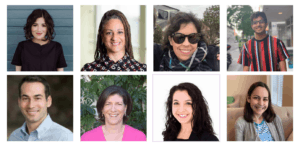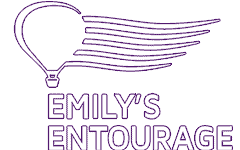Recap: FDA Listening Session for the Final 10% of People With Cystic Fibrosis, Hosted by Emily’s Entourage
On Thursday, July 15, 2021, Emily’s Entourage (EE) held a “Patient Listening Session” with the U.S. Food and Drug Administration (FDA) to advocate on behalf of the final 10% of the cystic fibrosis (CF) community that does not benefit from existing targeted therapies. The final 10% consists of people who do not benefit from the currently available mutation-targeted, modulator therapies due to ineligible mutations, side effects, or lack of access.
Listening sessions are small, informal meetings, closed to the public, where patient advocacy groups speak with FDA staff about their experience living with and managing a disease. The goals for EE’s listening session were to share and humanize the urgent, unmet therapeutic needs that remain for this segment of people with CF; build a strong relationship with the FDA; and ensure the perspectives of the CF community are included at every stage of the drug development and approval processes.
The session brought together a variety of CF community members, including a CF clinician, three adults with CF, and three family members of individuals with CF, who shared their lived experiences with the disease and the urgent unmet treatment needs.

(Left to right) Emily Kramer-Golinkoff, adult with CF: Dr. Jennifer Taylor-Cousar, CF clinician; Lizi Gilad Silver, adult with CF; Abhijit Tirumala, adult with CF; Arek Puzia, father of a child with CF; Diane Shader Smith, mother of an adult with CF; Gabriela Castillo, adult with CF; and Natalie Wasserman Kingston, adult with CF (represented by her sister, Mollie Wasserman).
EE Co-Founder, Emily Kramer-Golinkoff, served as the host for the meeting, providing background on CF, the final 10% of the CF community, and Emily’s Entourage while weaving her story throughout. In her remarks, she underscored the profound impact of the disease on people with cystic fibrosis with insights garnered from a survey of more than 420 people with CF who do not benefit from existing CFTR modulators, which was conducted by EE in June 2021.
Of those surveyed, 69% of respondents reported having had at least one hospital stay in the year prior to COVID-19, and 14% had five or more hospital stays that year.
Emily spoke to the treatment burden for those with CF, citing that 40% of the survey respondents spend at least two hours per day on routine medical treatments and, on average, survey respondents currently do more than five pulmonary-related treatments and 4.8 non-pulmonary, CF-related treatments.
“Just keeping up with the treatments alone is a full-time job, not to mention CF’s impact on an individual’s energy and health,” she explained.
She went on to share how her disease has progressed over the years and its impact on her life.
“I often feel like I’m stuck in this weird limbo between living and surviving. There’s a constant feeling of not trusting my body. I work so hard, I haven’t missed treatments in decades, I take no shortcuts, and yet nothing is enough.”
Emily shared that the CF community realizes the hope for better futures and new treatments lies in clinical trials.
Seventy-seven percent of survey respondents said they are interested in participating in clinical trials, and 54% said they would participate even in the face of potential health risks if the possible benefits outweigh the risks.
Following Emily’s statements, Dr. Jennifer L. Taylor-Cousar, MD, MSCS, ATSF, co-director of the adult CF program, director of the CF therapeutics development center adult program, and professor in the department of medicine and department of pediatrics at National Jewish Health, provided an overview of existing CF treatments and explained who makes up the final 10% of the CF community.
Dr. Taylor-Cousar explained the progress that has been made for 90% of people with cystic fibrosis, and the devastating reality that 10% of the CF community still do not benefit from the transformational drugs that are providing so many others with a new lease on life.
She shared an anecdote that spoke to the urgent need for the final 10%: Of five patients who were listed for a lung transplant, three became eligible for CFTR modulators and their health improved so dramatically that they were removed from the transplant list and remain off the transplant list to this day. The remaining two patients were not eligible for modulators and both underwent transplants, highlighting the significant divergence in health outcomes among those who benefit from modulators and those who do not.
Additionally, Dr. Taylor-Cousar shared that non-white populations are disproportionately represented among the final 10% of the CF community that does not benefit from existing modulators, further compounding the many significant health inequities these groups already face.
Next, six members of the CF community shared their experiences living with the disease. The community members represented a wide range of different disease stages, manifestations, ages, and ethnicities, which reflect the diversity that exists within the CF community and especially within the final 10%. The speakers included:
- Mollie Wasserman, sister of an adult with CF (on behalf of Natalie Wasserman Kingston)
- Arek Puzia, father of a child with CF
- Gabriela Castillo, adult with CF
- Abhijit Tirumala, adult with CF
- Diane Shader Smith, mother of an adult with CF
- Lizi Gilad Silver, adult with CF
Their testimonies were deeply personal and, at times, emotional to share. They spoke about the impact of CF on their daily lives, relationships, mental health, and aspirations for the future. We are deeply grateful to each and every one of the participants for their courage in sharing such raw, powerful personal stories.
Following their remarks, Emily kicked off a lively open Q&A session with questions from the FDA for the panelists and wrapped up the meeting with a recap of the themes from the testimonials and survey data. She shared impassioned takeaways, pushing the FDA to understand that “CF is not done” and that speed and “buying time” are critical for those in the final 10%, and urged them to prioritize drug reviews and apply regulatory flexibility for people for whom waiting might be the difference between life or death. Emily concluded by extending sincere thanks to the FDA for the work they have done for the CF community and expressing a heartfelt desire to partner with them in the shared goal to get lifesaving treatments to people with CF who urgently need them quickly.
Read a full, detailed summary of the session here.
